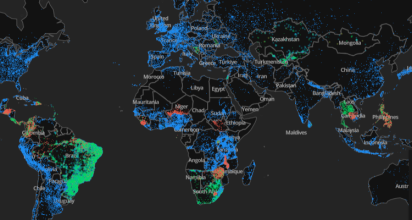-
Publié le
La GSEM publie son rapport annuel 2024

-
Publié le
Les effets à long terme de l’aide alimentaire d’urgence : l'exemple de la famine éthiopienne de 1984

-
Publié le
Olivier Scaillet nommé co-président de la conférence asiatique 2026 de l’Econometric Society

-
Publié le
La hausse des prix de l’immobilier et ses effets sur les entreprises chinoises

-
Publié le
Anouk Bergner rejoint la GSEM comme professeure assistante

-
Publié le
Tina Ambos nommée au comité éditorial du Journal of Organization Design

-
Publié le
L’influence de Genève au service de la recherche et de l’accès à Internet

-
Publié le
Les droits humains dans les institutions financières européennes

-
Publié le
Eva Cantoni et Giuseppe Ugazio récompensés pour la qualité de leur enseignement

-
Publié le
Infrastructures routières : optimiser coûts et impact environnemental

-
Publié le
Mobilité économique intergénérationnelle au Danemark

-
Publié le
Charles Gottlieb rejoint la GSEM comme professeur invité

-
Publié le
Ines Chaieb reçoit le S&P Global Academic ESG Research Award

-
Publié le
Le rôle de la prise de décision collective dans la résolution des grands défis

-
Publié le
Jeffrey Näf rejoint la GSEM comme professeur assistant





